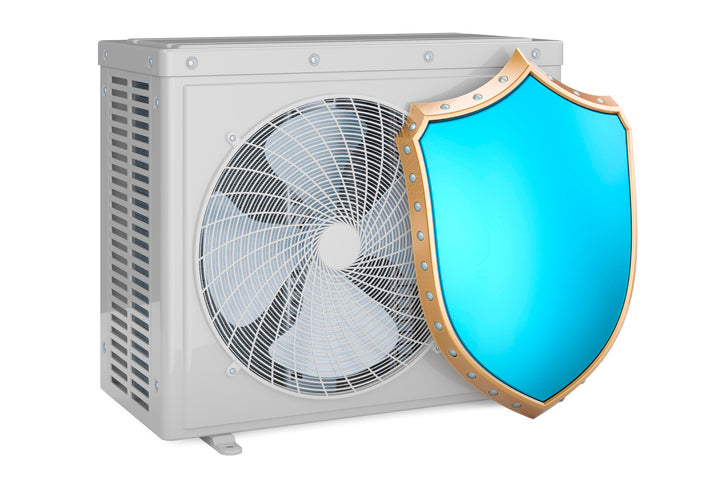A Guide to Saving Money on Your Utility Bills

Monthly utility bills can take a significant toll on your finances. Such bills include energy bills, water bills, heating oil bills, gas bills, and sewer bills. For many Americans, these bills make a significant dent in their finances. While such expenses are practical necessities and eliminating them entirely isn’t an option, there are many measures you can take to help reduce them. To do so, consult this guide to saving money on your utility bills.
Utilize an energy-efficient HVAC system
The cost of heating or cooling your house has one of the biggest impacts on your utility bill. As such, switching to an energy-efficient mini split ductless system is one of the best ways to save money. Mini split systems are one of the most energy-efficient options when it comes to home heating and cooling systems. Their energy efficiency is largely due to their lack of ducts, which allows temperature-controlled air to be dumped directly into the room they’re heating and cooling. There is no opportunity for air to wastefully leak out and far less energy has to be consumed to pump the air throughout the house from a central location, like most heating and cooling systems.
Wash your clothes in cold water
Your washing machine consumes a large amount of energy each time you do your laundry. Most of this energy is dedicated to heating the water that your clothing is washed in. Simply washing your clothes in cold water can significantly cut down on your energy expenditure. Although many people are wary of washing their clothes on the cold setting, because they believe their clothes won’t be cleaned properly, there’s no need to worry. Unless your clothes are completely soiled, cold water will effectively clean your clothing. As a bonus, washing your clothes on the cold setting will also help make their colors last longer.
Unplug electronic devices when not in use
If you’re really committed to saving money on your utility bill, you may have to break some old habits. While many of us are accustomed to leaving our devices plugged in when we aren’t using them, doing so can cause your electric bill to creep up. Even if you turned your electronic devices off, they will continue to suck electricity out of your home unless they are completely unplugged. This occurrence is called a “phantom charge.”
While the small amount of energy that your plugged-in devices consume throughout the day may not seem worth the hassle of unplugging them, it can really add up. If your television, hairdryer, phone, computer, DVD player, stereo, lamps, toaster, and other devices remain constantly plugged-in, the cumulative amount of energy that is wasted will surely make a dent in your utility bill. Unplugging and re-plugging all your devices throughout the day, however, can be tedious. To make it easier, consider purchasing a few power strips. By plugging various appliances into one strip, you can easily unplug them all at once instead of individually.
Turn down the temperature of your hot water heater
Our next tip can greatly reduce your monthly utility bill without costing you a dime or requiring any lifestyle changes or sacrifices. All you have to do is turn down the temperature of your hot water heater. Nobody needs the water in their home to reach scalding temperatures. In fact, allowing water to reach extremely high temperatures can be dangerous, as it increases the potential for accidental burns. As such, there is no reason to pay for your water to reach the 140-degree default setting that most hot water heaters are set to.
Instead, consider turning it down to around 120 degrees. Because most people shower in temperatures around 105 degrees, your water should still be plenty warm enough to keep you comfortable. In addition to saving a good chunk of change on your utility bill, turning down the temperature on your water heater can also help reduce mineral buildup in your pipes. It also basically eliminates the risk of scalding due to excessively high water temperatures.
Insulate your home
As previously stated, heating and cooling your home can consume a lot of energy. To help make your temperature control system more efficient, it’s important to insulate your home. Doing so will prevent temperature-controlled air from escaping your home so that your heating and cooling systems don’t have to consume as much energy to keep your home at a comfortable temperature. As a result, you will likely notice a significant dip in your utility bill by insulating your home—especially during the year’s warmer and colder months.
Turn off lights whenever possible
Another habit to get into that can help you save money on your electricity bill is turning off the lights when you leave the room. While you’ve likely been told this tip hundreds of times already, many people still forget to do so. Leaving the lights for hours on end each day can rack up a pretty substantial bill—especially if you use incandescent light bulbs which consume a lot more energy than LED or CFL bulbs. Remember to shut them off every time you leave the room to conserve energy.
In addition to shutting off the lights when you aren’t in the room, you should also make an effort to use natural light as much as possible. The next time it is sunny out, consider opening the drapes to let the sun illuminate your space for free, rather than paying for artificial lighting.
If you’re interested in lowering your utility bill, consider purchasing a ductless mini split system from the Pioneer Mini Split Store. We sell a variety of high-quality mini split options, such as wall-mounted, ceiling cassette, floor-ceiling mounted and floor mounted, and multi split ac products. In addition to the year-round savings that our energy-efficient AC and heat pump systems provide, mini split systems are also far more affordable and easier to install than central heating systems. To receive all the benefits mini split systems have to offer, contact the Pioneer Mini Split Store today.







